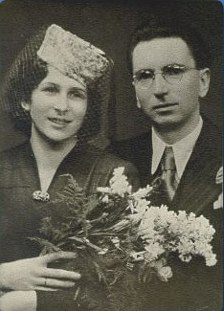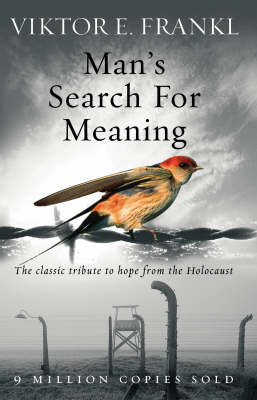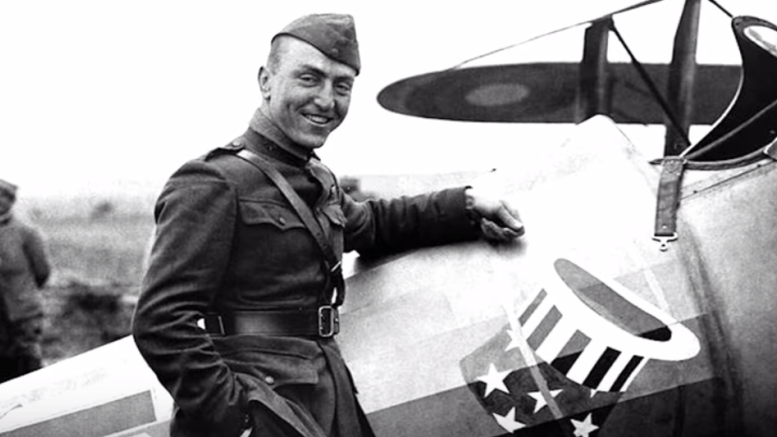|
home | what's new | other sites | contact | about |
||
|
Word Gems exploring self-realization, sacred personhood, and full humanity
Tilly and Viktor
Tilly Grosser and Viktor Frankl wedding photo, 1941
Wikipedia: “Viktor Emil Frankl (26 March 1905 - 2 September 1997) was an Austrian neurologist and psychiatrist as well as a Holocaust survivor. Frankl was the founder of logotherapy, which is a form of existential analysis, the 'Third Viennese School of Psychotherapy'. His best-selling book Man's Search for Meaning chronicles his experiences as a concentration camp inmate, which led him to discover the importance of finding meaning in all forms of existence, even the most brutal ones, and thus, a reason to continue living. Frankl became one of the key figures in existential therapy and a prominent source of inspiration for humanistic psychologists. “On 25 September 1942, Frankl, his wife, and his parents were deported to the Nazi Theresienstadt Ghetto. There Frankl worked as a general practitioner in a clinic. When his skills in psychiatry were noticed, he was assigned to the psychiatric care ward in block B IV, establishing a camp service of psychohygiene or mental health care. He organized a unit to help camp newcomers to overcome shock and grief. Later he set up a suicide watch, assisted by Regina Jonas. “On 19 October 1944, Frankl and his wife Tilly were transported to the Auschwitz concentration camp, where he was processed. He was moved to Kaufering, a camp affiliated with Dachau, on 25 October, where he spent five months working as a slave laborer. In March 1945, he was offered a move to the so-called rest camp, Türkheim, also affiliated with Dachau, where he worked as a physician until 27 April 1945, when the camp was liberated by American soldiers. Frankl's mother Elsa and brother Walter died at Auschwitz. His wife was moved to Bergen-Belsen, where she died.”
Viktor Frankl, Man's Search for Meaning: recounting an Auschwitz experience: "We stumbled on in the darkness, over big stones and through large puddles, along the one road running through the camp. The accompanying guards kept shouting at us and driving us with the butts of their rifles... But my mind clung to my wife's image, imagining it with an uncanny acuteness. I heard her answering me, saw her smile, her frank and encouraging look... for the first time in my life I saw the truth as it is set into song by so many poets, proclaimed as the final wisdom by so many thinkers. The truth - that love is the ultimate and the highest goal to which man can aspire. Then I grasped the meaning of the greatest secret that human poetry and human thought and belief have to impart: The salvation of man is through love and in love. I understood how a man who has nothing left in this world may still know bliss, be it only for a brief moment, in the contemplation of his beloved... I resumed talk with my loved one: I asked her questions, and she answered; she questioned me in return, and I answered." “My mind still clung to the image of my wife. A thought crossed my mind: I didn’t even know if she was still alive. I knew only one thing, which I have learned well by now, love goes very far beyond the physical person of the beloved. It finds it deepest meaning in his spiritual being, his inner self. Whether or not [she] is actually present, whether or not [she] is alive at all, ceases, somehow, to be of importance. I did not know whether or not my wife was alive, and I had no means of finding out … but, at that moment, it ceased to matter. There was no need for me to know. Nothing could touch the strength of my love, my thoughts, and the image of my beloved. Had I known then that my wife was dead, I think that I would still have given myself, undisturbed by that knowledge, to the contemplation of her image, and that my mental conversation with her would have been just as vivid and just as satisfying. Set me like a seal upon thy heart. Love is as strong as death.” “The guard passed by, insulting me, and once again I communed with my beloved. More and more I felt that she was present, that she was with me. I had the feeling that I was able to touch her, able to stretch out my hand and grasp hers. The feeling was very strong. She was there. Then, at that very moment, a bird flew down silently and perched just in front of me - on the heap of soil which I had dug up from the ditch - and looked steadily at me.”
Kairissi. I believe that any philosophy of life, as product of great suffering, should be given careful consideration. Elenchus. Men who live under constant threat of imminent death are likely to be trustworthy. Dr. Viktor Frankl, the slave-laborer, speaks of “the greatest secret,” “the truth,” “the final wisdom,” “the ultimate and highest goal.” K. In his great misery, a ray of solace comforts him. He is granted a vision of what we have called ultimate reality. E. His insight into the architectonic nature of things was borne on the wings of a mental image of his lover-wife smiling at him. K. Notice, too, about her smile – it is cloaked not just with encouragement but with plain speaking. E. I will tell you this absolutely, as my inner person shouts to affirm: when you were a little girl, in those times when you smiled at me, rare as they were… K. (smiling) E. … your smiles were never flirtatious – never. I know that now. I can sense your energy back then. Your smiles represented truth. I’ve always liked that about you. I didn’t even know that I liked it until much later… K. (smiling) E. … but you were always honest with me. Sometimes you’d be peevish and petulant, and you’d express that, too, and maybe I’d feel bad, but you never attempted to deceive or flatter; what I saw is what I got. As a young boy I could not yet know how rare your quality of “frankness” would be to me in my life. You never “played a role,” and now, long after the fact, I discover how much I liked that about you. K. (sighing) E. And Viktor acknowledges this quality of frankness – truthfulness -- of his lover as part of “the final wisdom.” K. (silence) E. And notice what he says about all this ultimate reality, centered in her smile: it is “the salvation of man.” K. (very softly) And what is the essence of this salvation? E. I think... it's to “know bliss.” K. And what is the nature of this bliss? E. Bliss is to receive her smile, to reciprocate, and enter into communion with her. Acknowledging this reciprocity, he then recounts speaking with his beloved: “I resumed talk with my loved one: I asked her questions, and she answered; she questioned me in return, and I answered." K. Some would say that this “conversation,” while poetic and comforting, is but the delirium of a man worked nearly to death. How shall we view this dialogue, Ellus? E. I'd like to know what you think. Love has always been your home-court advantage. Why don’t you explain it to me? K. Well… the question is, do these conversations have any basis in reality? … in some sense, I’m inclined to believe that they do. E. (silence) K. We know that great trauma might induce and precipitate psychic abilities. However, that acknowledged, I don’t think that’s what’s happening here. Viktor himself, later in his psychiatric research, drew distinction between the “psychogenic” and the “noogenic” – the first being man’s animal-instinctual drives, which would include those of the common psychological inclinations, versus the higher leadings and promptings of the elevated mind or soul. E. Did Viktor hear actual voices? K. Not as such, not the way we commonly hear voices. I think Viktor was attuned to the essential soul-energy of Tilly. I think this is an example of “quantum entanglement,” an intensely shared bondedness due to “the missing Twin syndrome.” E. Could you help us understand? K. Viktor was linked to her in spirit. Tilly may have even been sent to the ovens by now, but, as Viktor himself acknowledged, her death would not hinder their communication. I think they were so connected in a “union of spirits” that he could discern both her questions and her answers. E. Strangely, I know exactly what you’re talking about. K. And now you can explain it to me. E. At times in our lives, when we’ve been separated, in my misery, just as Viktor experienced, I would “speak” to you, and then I would “hear” your answer. And you would respond, and even joke with me. The sense of your presence, your energy, was so strong, that I knew what you would say if you were before me bodily. K. Elenchus, there is truth in this. And this mystical method of communication is exactly how the great psychics say we might communicate with dearest loved ones on the other side. E. I know you’re correct. The Guides often are adamant to insist that Twins are never separated. They say that’s not possible. K. I think this analogy will help, Ellus. It’s like the sun rising in the morning. We say it ”rises,” and on a certain level of reality this is true, but if we were to observe the sun from outer space, we’d find a more accurate view, that the sun neither rises nor sets but just shines all the time. E. I like your example. And so, when Viktor lost his darling companion, and when I’ve been separated from you, on a certain level of reality, the distance between us was painfully real. K. But on a higher level of reality, the sun never stops shining; and on that higher level, Ellus, we were never separated – never! – even more on that higher level, I was never angry with you, despite all that we knew to the contrary - and my smile was always there for you.
K. We’ve surmised that “Viktor was attuned to the essential soul-energy of Tilly.” But, Ellus, we’re forgetting some really credible evidence that supports this view. It’s the “Rickenbacker case.” E. Oh, yes, you’re right! – Adela and Eddie. K. It’s an astonishing account of lovers directly communicating across the “ethers.” Our readers will want to have a glance at their story before continuing here. READ MORE
Eddie Rickenbacker, World War I Fighter-Pilot Ace
K. Let’s see what we can learn. Eddie was adrift somewhere in the big ocean, lost at sea. He probably didn’t think he’d survive. E. On his own “death row,” just like Viktor. K. And there's something else that seems to be like Viktor's situation -- and here’s the really interesting point. We now know that some aspect of Eddie’s mind – we’ll call it his higher self – purposefully sent a message to Adela via psychic-medium. But Eddie, the mortal-personality Eddie, had no knowledge of this! E. That is so amazing. Everybody needs to read the details of their story. K. Alright, buddy, here’s my theory on this. I think that if a person is saddened unto death, grieved at the probable loss of a beloved, a higher aspect of the mind and soul sort of kick into gear. It’s likely there all the time, but, when the walls start closing in, it gets more respect. E. (smiling) K. And I think – I wouldn’t be surprised if – the conversations between Viktor and Tilly were more than fabrications of a tormented brain. E. Tell me more. K. Ellus, My Love, you have said that during our time of separation, when you despaired of ever seeing me again… when I was “dead” to you… that you had to “invent me” because you wanted to talk to me so much. E. (silence) K. You have said that some of those late-night talks with me, in the sacred darkness, as you’ve put it, seemed very real to you… that I would make little jokes, and you would tease me, too… but, my question now is, how much of that communication was just fancy and make-believe? … or was it something else, something more? -- a real “open channel” through which true lovers are always connected... I will tell you this -- I don't think you had to "invent me"... whether we knew it or not, in some sense, I think I was really with you during those times of sorrow and straitening. E. And will you smile for me now? K. And why such a request? E. My higher self, and also just plain ol' me, both affirm -- it's the "salvation of man," you know. And when I think of those dark days of losing you, adrift in despair, I could use a little saving. K (smiling)
|
||
|
|



